Sparkling and late harvests certified algarvian wines, organic wines and the return of palhete wines. These are the major trends in the wine sector in the region, announced this Monday, March 2, during the launch of the new logo for Vinhos do Algarve, at the Museu de Portimão.
In an interview with Sul Informação, Sara Silva, president of Algarve Wine Commission (CVA), added that “there are more and more producers betting on organic production. There is also such resurrect of reeds, of claret, a type of wine that already existed for many years in the Algarve and which is now being taken up again, in the trend of having less alcoholic wines, which are more in line with what today's consumers are looking for».
As for the sparkling wines, which have been produced in the Algarve for a decade and a half – the first was the Quê, from Quinta do Barranco Longo, launched in 2005 -, the process is now being developed so that they can be certified with the IGP of Algarve wines. The same goes for late harvest wines (late harvest), which are also already produced in the region, but still without certification.
In addition to the increase in the quality of the wine produced in the Algarve – with regional (Negra Mole), national and even international varieties, giving rise to whites, reds and rosés awarded nationally and internationally – Sara Silva emphasizes that the bet is «for each more and more to have a more diversified range of products'.
The CVA board, chaired by Sara Silva, decided to create a new brand that not only gives a uniform image to all Algarve wines, but distinguishes them from all others. For this, the NUTS branding company, by Laura Lopes, took the elements that define the region – sea, vineyard, grapes, sun, fish, wine, platband and chimney – and the vibrant Algarve colors to create a new brand, a logo to be used by all wines, but also, in the future, by those who sell and consume the nectars of the Algarve.
«We now have a brand that can identify and differentiate us as a region», explained Sara Silva to our newspaper. «We are in the Algarve, the wine is from the Algarve and that logo on the bottle reflects everything from the Algarve region – gastronomy, sun, sea, heritage. We wanted to make it an element that was recognizable even in terms of communication and so that we could overcome this barrier of the frequently asked question: “is there wine in the Algarve?”. There is and with a lot of quality, is the answer that this new brand gives.
Vítor Neto, president of NERA, the Algarve Business Association and former Secretary of State for Tourism, also present at the session, told the Sul Informação that the creation of the new brand «is important, because it creates a personality and gives an identity that can be another positive factor to boost and strengthen the sale of Algarve wines».
At this moment, as revealed by Sara Silva, there are already 45 economic agents registered with the CVA, including producers, wine growers and bottlers, of which 31 are actually producers putting wine on the market.
The average of the properties is about five hectares, being, in general, farm wines, with reduced productions. In addition, the price of land in the region is very high, due to competition from tourism and real estate, so it is not easy to invest in the vineyard sector.
Although Algarve wine production is growing from year to year, having reached 1,3 million bottles in the 2019 campaign, the truth is that the region will not be able to compete for the quantity either. Rui Falcão, a wine journalist invited by CVA to give two lectures during the launch of the new identity of Vinhos do Algarve, recalled that «only the Muralhas de Monção wine [green wine] produces 6 million bottles every year». In total, the 31 Algarve producers are responsible for just 1,3 million bottles…
For all that, the prices of wines in the Algarve are higher than in other wine regions of the country. So, what trump cards will Algarve producers be able to exploit? Sara Silva defends that «our path is to get revenge for the quality and genuineness of our products».
A curious fact is that 40% of the Algarve's winemakers are foreigners, from the most diverse nationalities: Swiss, British, Dutch, Belgian, German, French, South African.
The president of CVA emphasizes that this «is, in fact, one of the elements that contributes to the diversity of the wines we have. We don't have one type of Algarve wine, we have several types. There is a panoply of nationalities here that reflect different trends. Among the producers of foreign origin, there are those who bet on national varieties, others on international ones. In the midst of all this, Algarve wines are born, with all this diversity».
At national level, with a small production and, until now, with little visibility, the Algarve Wine still has «little expression». But this is also an image that CVA intends to change, with the new logo and a stronger commitment to communication and marketing.
Vítor Neto, president of NERA, defended, in his statements to our newspaper, that wine is a sector that still has a lot to give to the Algarve. “This is evident, above all because of its difference, its physical characteristics and its quality. Not so much for the quantity, because we have regions of the country that produce much more, but the Algarve wine has all the conditions to assert itself. It is necessary to make known its different varieties, its different types. All of them correspond to existing market segments and it's just a matter of communicating with them this specificity and this quality».
For his part, Pedro Valadas Monteiro, regional director of Agriculture, also present at the launch of the new identity, told the Sul Informação that «the work at the level of vines, production, winemaking, oenology has already been done. Now it's a good idea to work more on the marketing of Algarve wines and, from what we've seen here, that's what we're working on now».
"Given that we have a very small production, we must invest strongly in marketing associated with the territory and with the Algarve brand, which is a brand that sells, which has a huge international projection," he added.
Since Tourism is the region's main economic activity, Pedro Valadas Monteiro argued that regional wines will only gain from this international notoriety of the Algarve brand. «Wine, from all agricultural cultures, from all endogenous resources, is that product that, by tradition, has the greatest empathy and facility in creating synergies with tourism. This happens, for example, through the association with gastronomy, and the Horeca channel [Hotel, Catering, Cafeteria and Catering] is, for Algarve wines, the most important among all wine-growing regions in the country. It is here, in our own region, that we have the largest flow of production».
The Algarve Wine Commission also thinks the same, in such a way that last Monday's session was attended by many agents of the Horeca channel, from distributors to owners of restaurants and wineries or those responsible for the F&B of hotels. But the initiatives do not stop there.
On March 23, again a Monday, the CVA will organize an open day, which will take the various Horeca agents to visit around ten and a half of wine producers in the region. «There are a number of estates that will be available on that day for visits by economic agents in the professional market, in order to stimulate the sale of Algarve Wines in restaurants and hotels in the region. The more economic agents know about our wines, the more they will enjoy and have an interest in selling them to their customers», added the president of CVA.
This year, the Algarve Wine Contest will be re-issued, whose 13th edition will take place in May, "but with changes in the organization, namely in the jury". During the first half of this year, the Jornadas do Vinho, organized by the CVA, should also take place, with the collaboration of a «heavy partner» in the sector.
In the Algarve region, even to take greater advantage of the tourist market, there is, however, an area that needs more work: wine tourism.
Rui Falcão, the journalist specializing in wines invited by CVA to talk about current trends, had already drawn attention to wine tourism, which, he underlined, «can represent up to 50% of sales» by a producer.
Patrick Agostini, the pathologist who is a wine producer at his Quinta do Francês (Silves) and who has been strongly committed to wine tourism, stressed that this niche «can do a lot for the Algarve». The winegrower even offered to share his experience in this area with other producers.
For now, it is known that the Quinta da Aveleda, which bought Morgado da Torre a year ago, in Portimão, is investing heavily in wine tourism. But the Sul Informação you know there are other big investments in the pipeline.
In the Algarve, there is even a Wine Route, operated by an independent association. But the visits are not always working, as there are few producers who are actually part of it.
«The Wine Commission, at this moment, is trying to help the Route, by launching the application and promoting the quality of the wines. The producers have done a very personal job of designing their own farm, with visits, with wine tourism experiences, but in a very isolated way. It is important to add this offer. Turismo do Algarve will give support to revitalize the Algarve Wine Route, and thus help producers in this projection, in restaurants, in hotels. Here we have opportunities on our doorstep, we just have to make our proposals reach the level of wine tourism», considered Sara Silva.
For the regional director of Agriculture, «the sector has to increasingly invest in visiting its own wineries, in order to captivate tourists for the wine product». On the other hand, tourism also has a lot to gain from wine tourism, as a «differentiating factor for the regional tourism offer».
«No one has come to the Algarve on purpose yet because of our wines. But tourism can give a good help for that to happen», underlined João Gamboa, councilor of the Portimão City Council.
Photos: Elisabete Rodrigues | Sul Informação
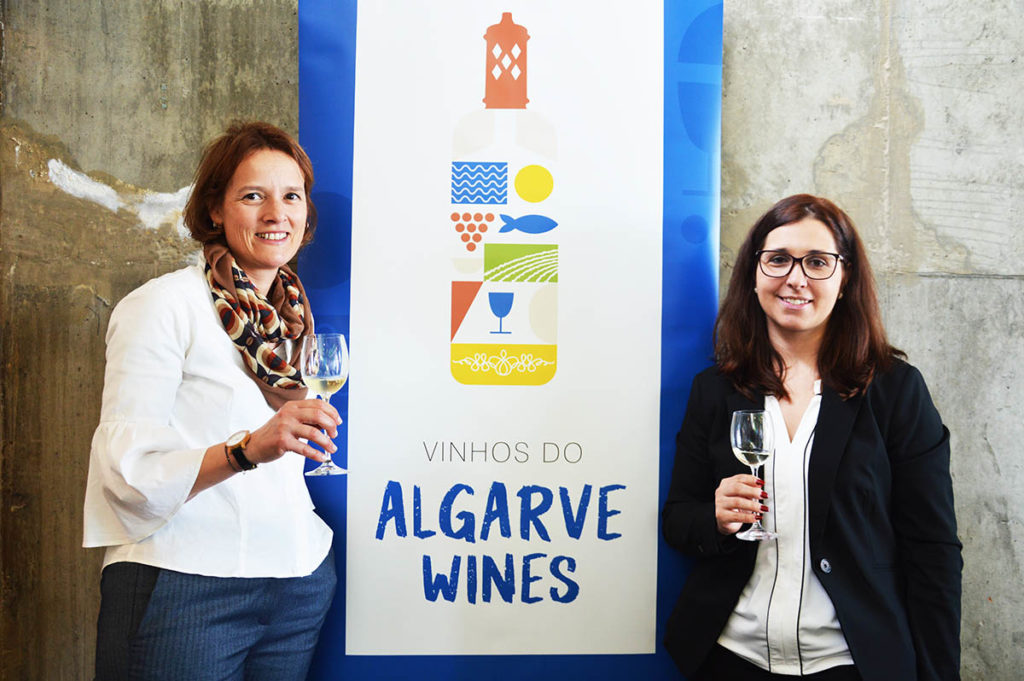
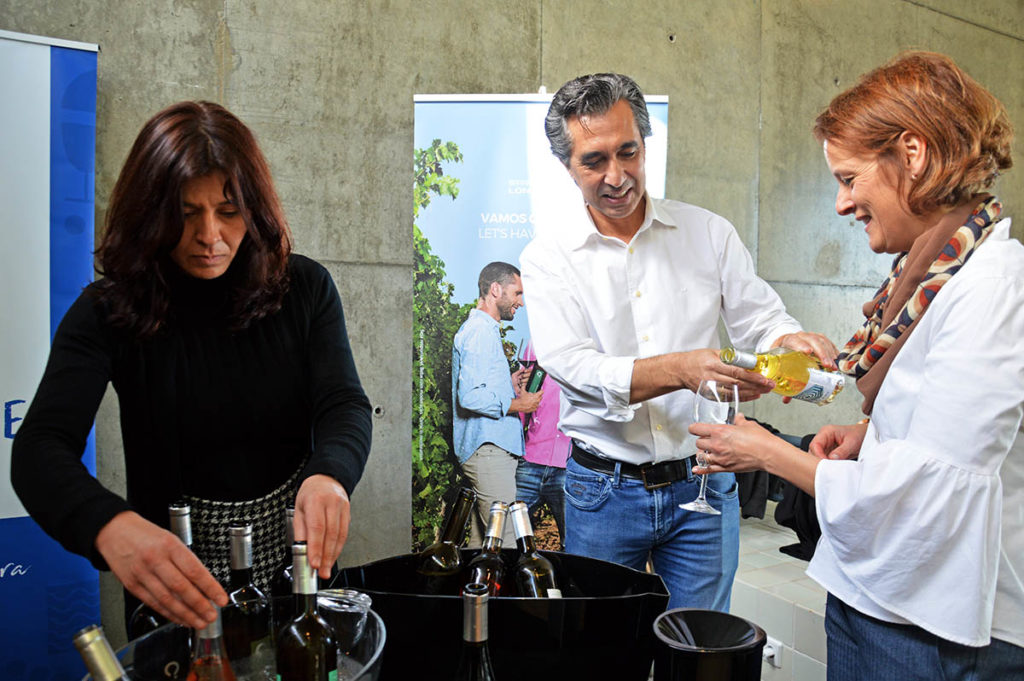
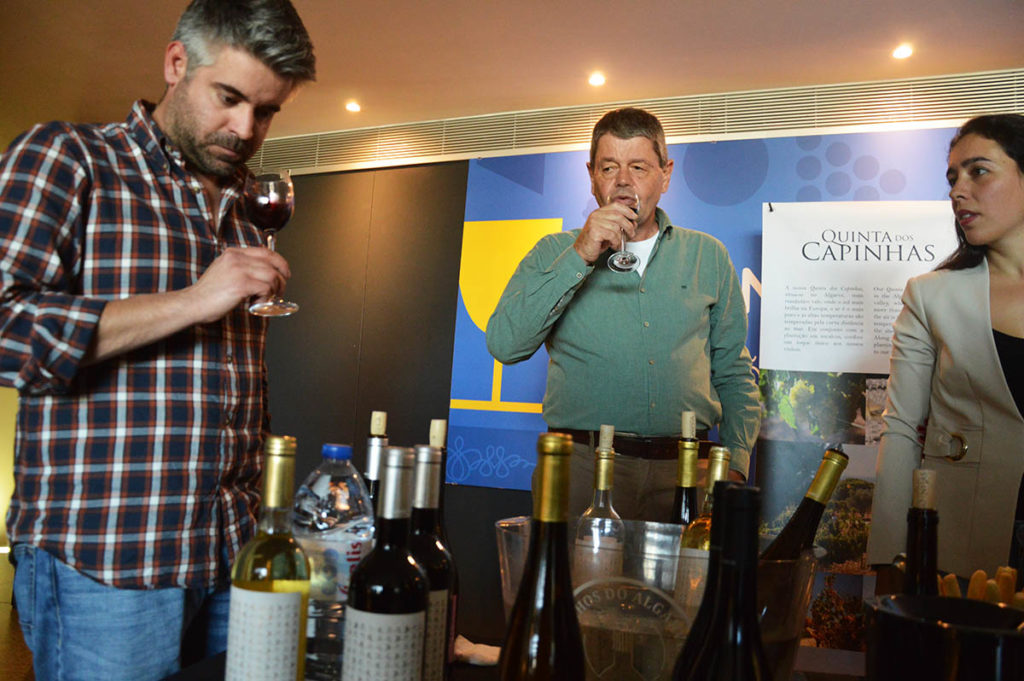

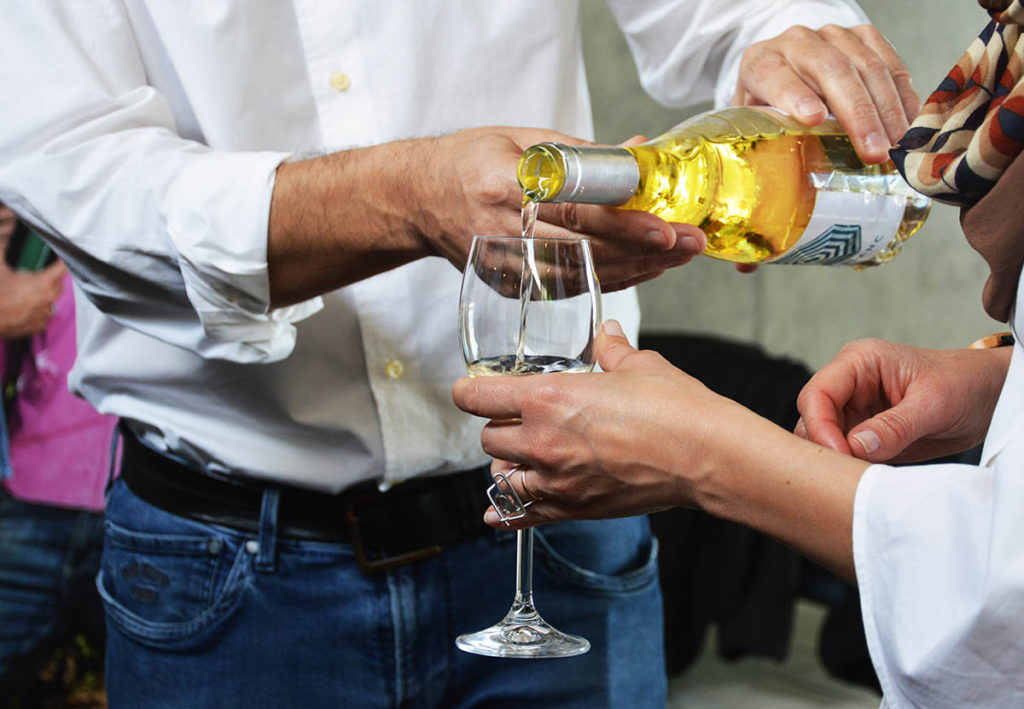
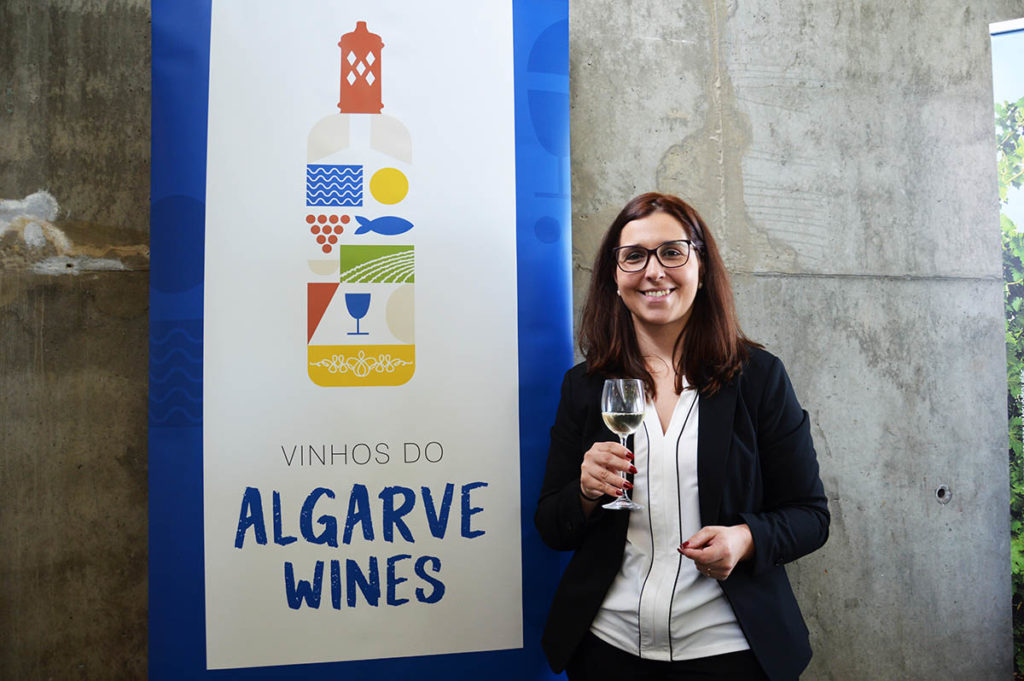
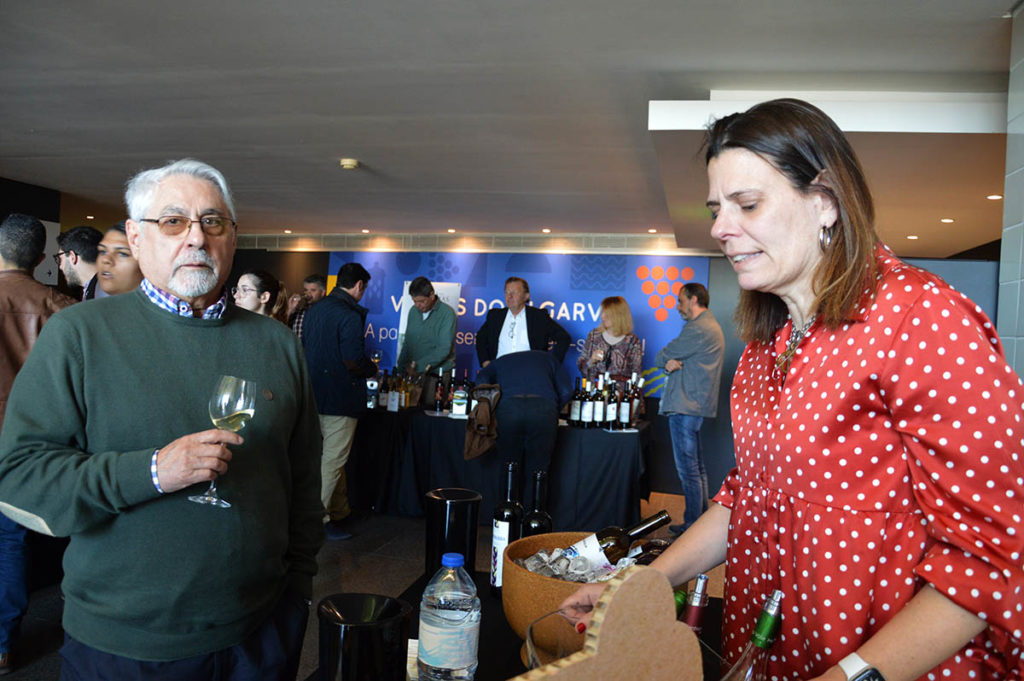
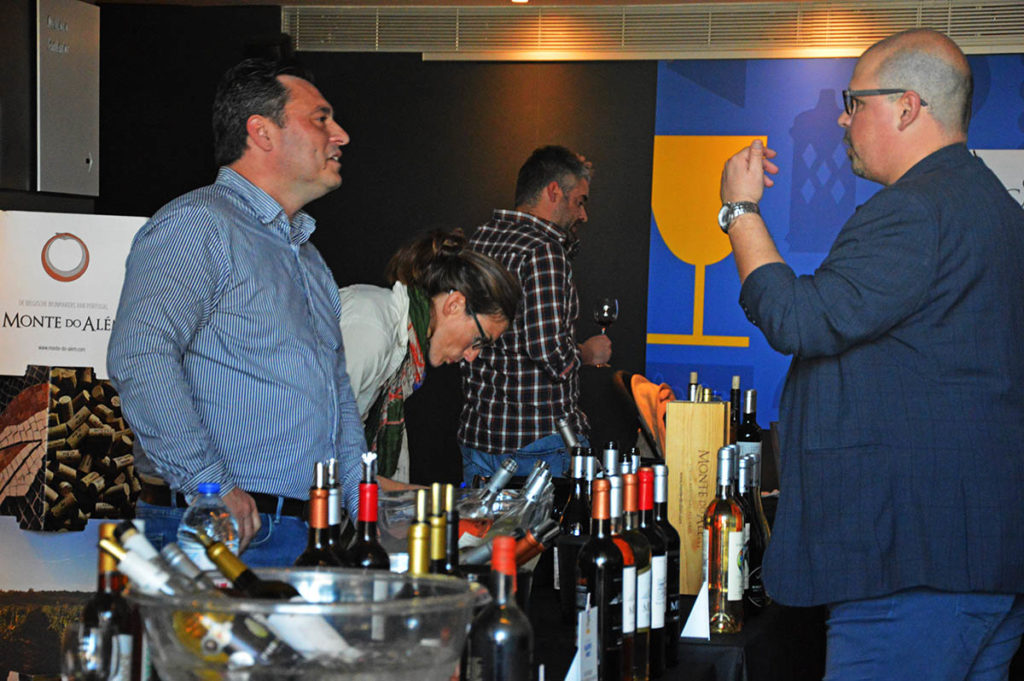
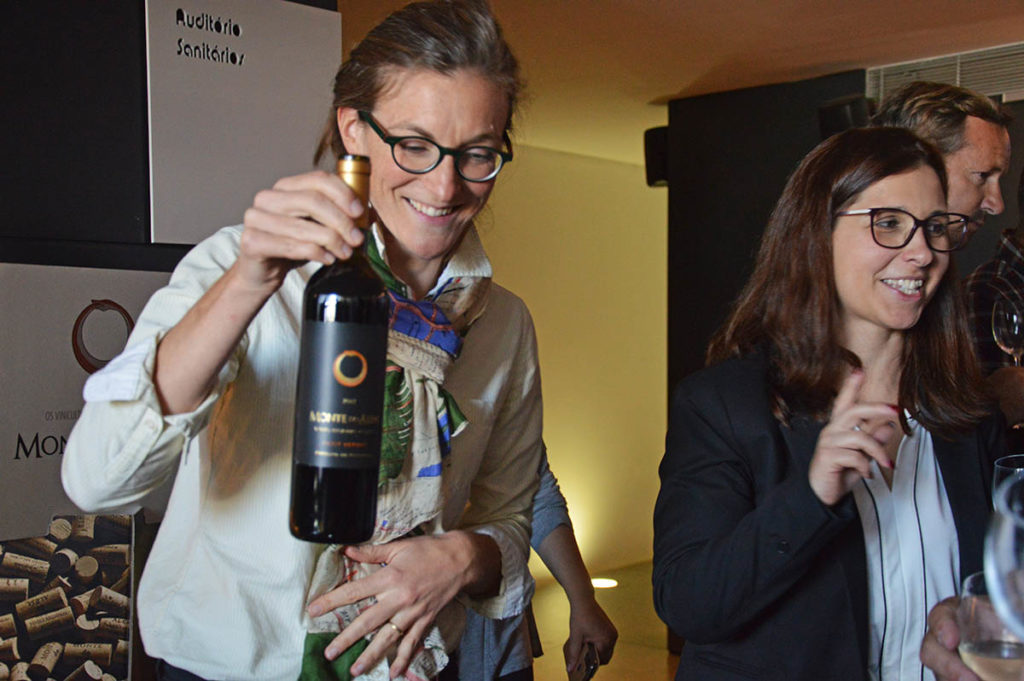
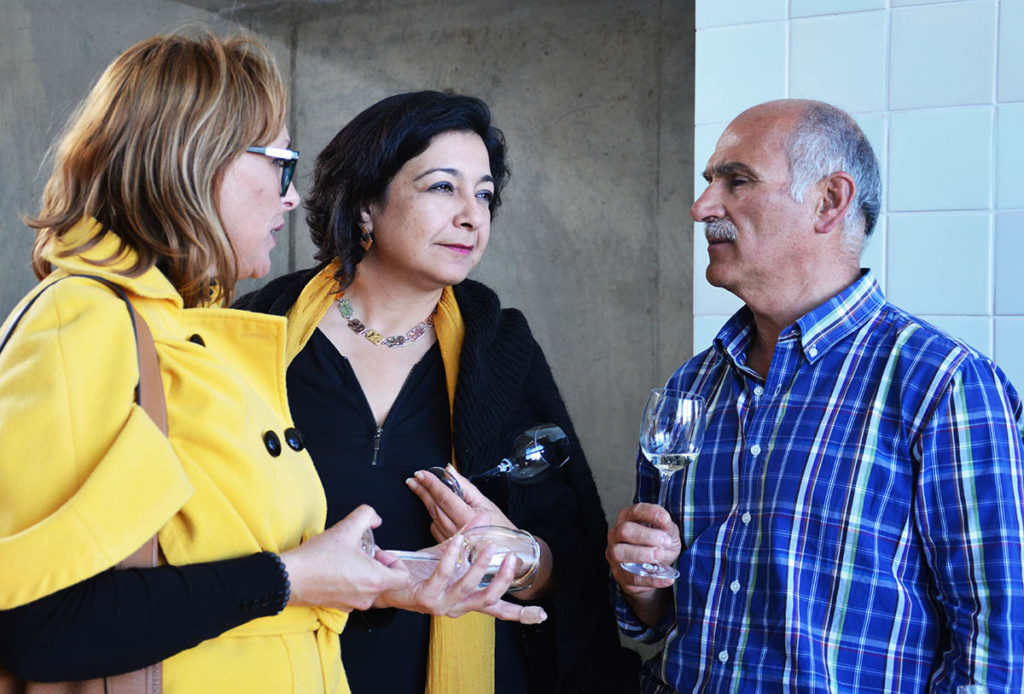
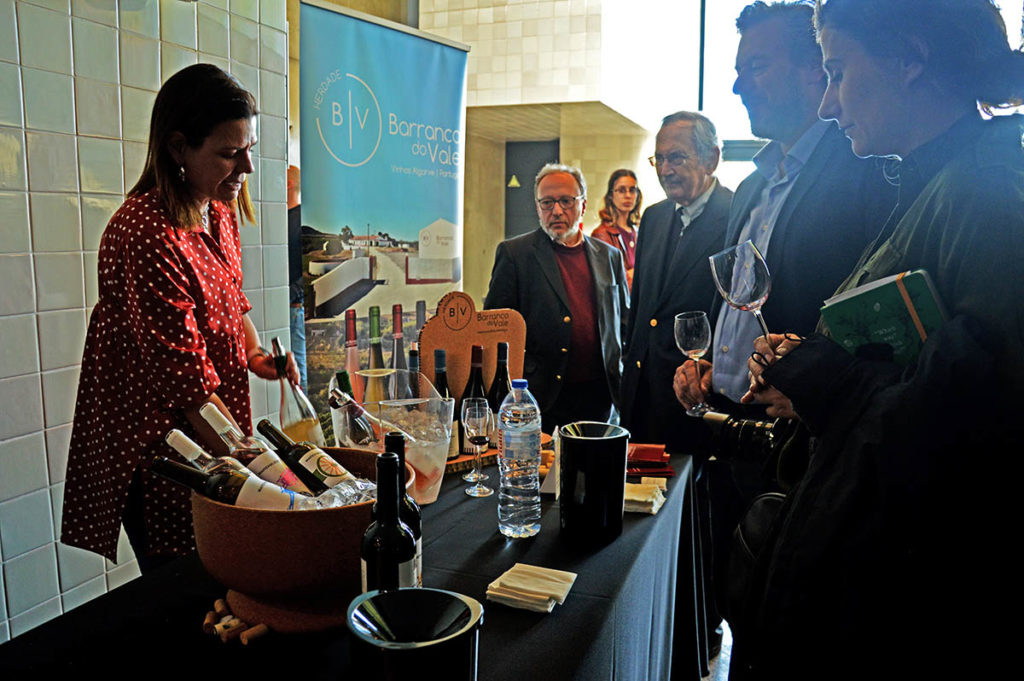
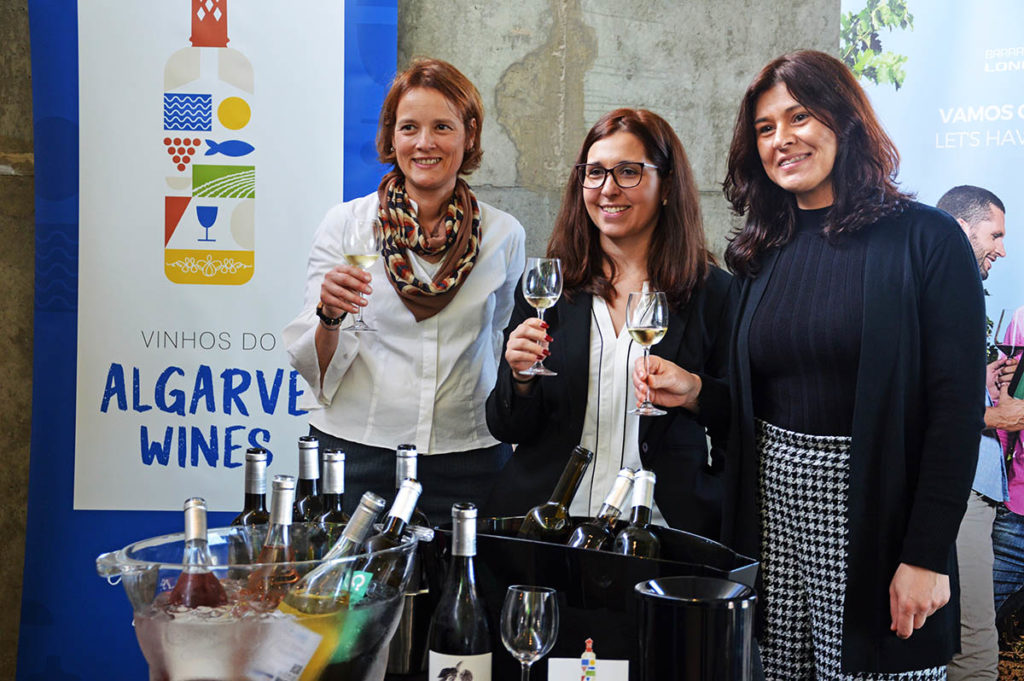
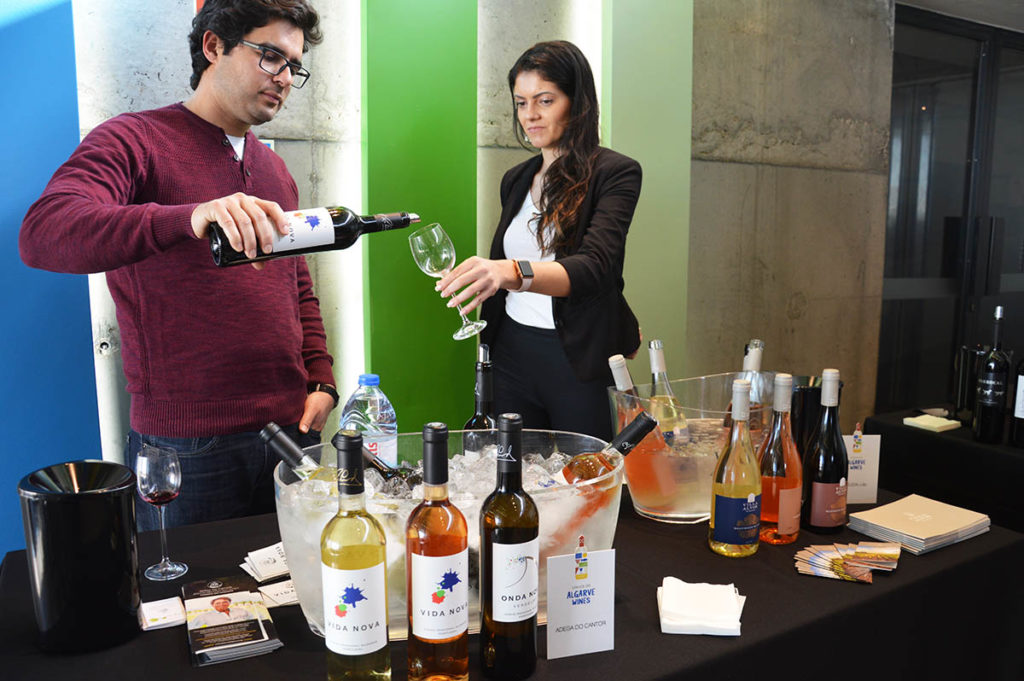
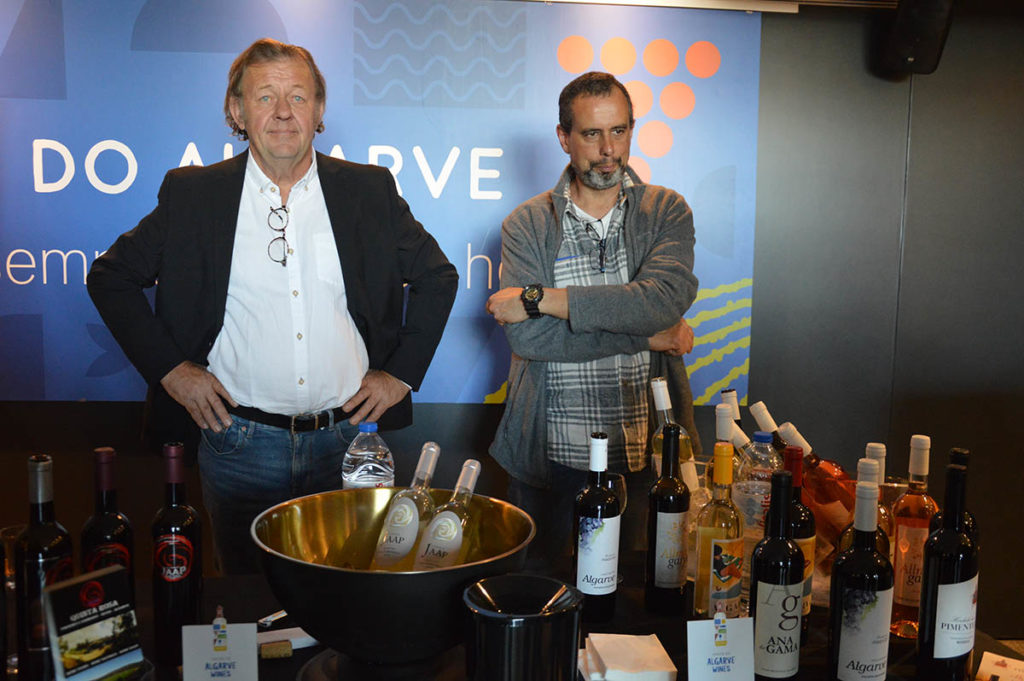
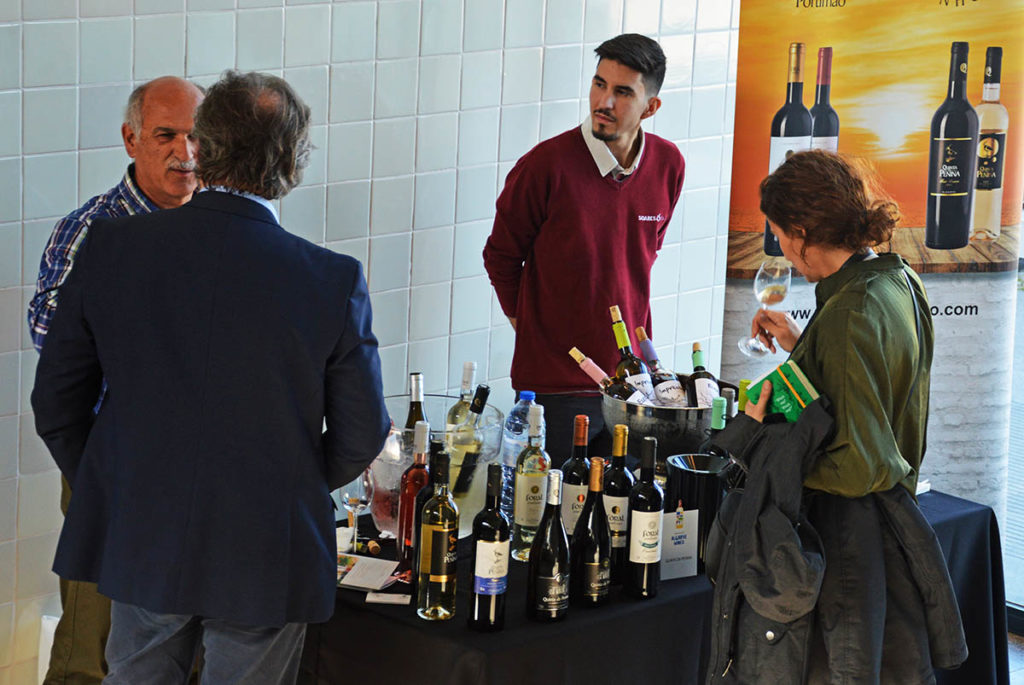
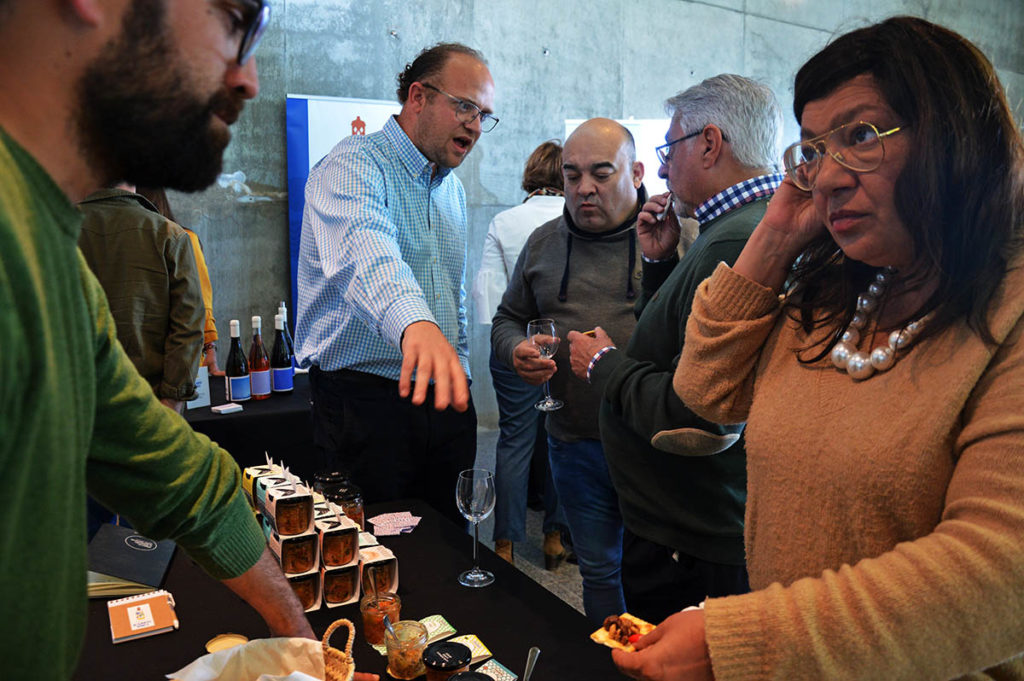


















Comments